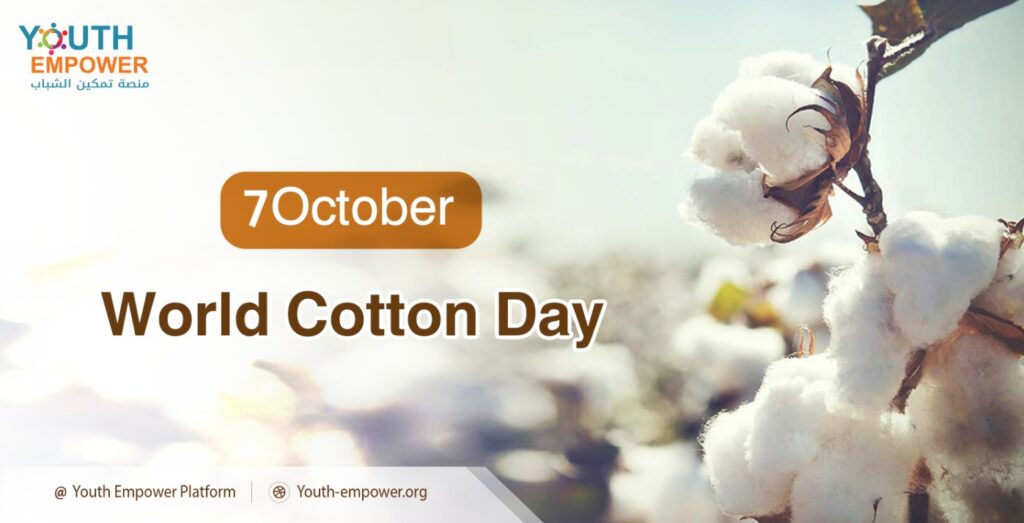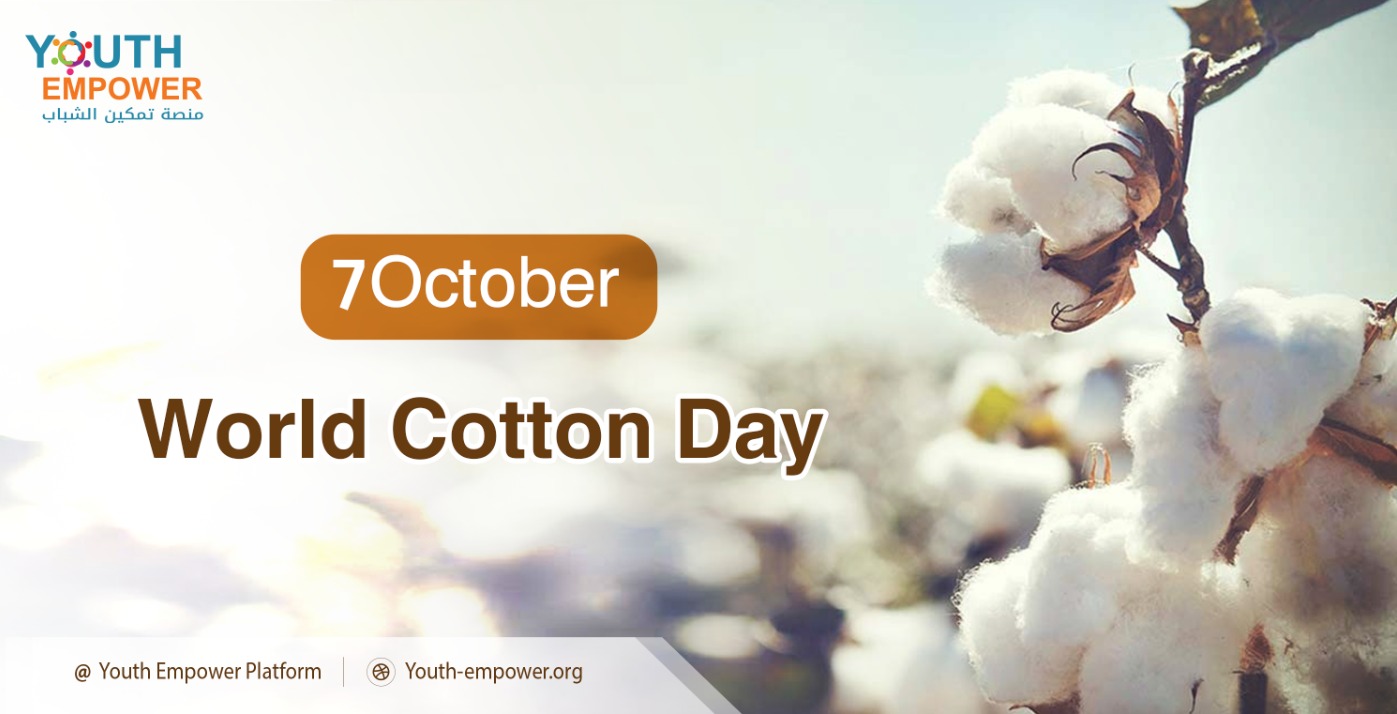World Cotton Day – October 7
World Cotton Day, celebrated annually on October 7, highlights the importance of cotton as a global commodity and its role in fostering sustainable development. This day is an opportunity to raise awareness about the economic and social significance of cotton production, especially for developing countries. It was initiated in 2019 by cotton-producing nations and international organizations like the World Trade Organization (WTO) to address the challenges faced by the cotton industry and promote fair trade.
History of World Cotton Day
World Cotton Day originated from the Cotton-4 countries—Benin, Burkina Faso, Chad, and Mali—who proposed a special day to celebrate cotton and address issues like subsidies and trade barriers that affect smallholder cotton farmers in developing countries. Supported by organizations such as the WTO, Food and Agriculture Organization (FAO), and the United Nations Conference on Trade and Development (UNCTAD), the first World Cotton Day was launched to highlight cotton’s vital role in boosting economic growth and reducing poverty.

The Economic Importance of Cotton
Cotton is one of the most important cash crops globally, serving as a primary source of income for millions of farmers and workers in over 75 countries. The cotton industry supports entire value chains, from farming to textiles, and contributes to the economies of many developing nations.
Cotton in International Trade
Cotton plays a significant role in international trade, contributing billions of dollars annually.
Countries in Africa, Asia, and Latin America rely heavily on cotton exports. However, challenges such as subsidies provided to farmers in developed countries make it difficult for smaller cotton producers to compete in the global market. These trade imbalances have long-term implications for the livelihoods of millions of farmers in developing countries.
Cotton and Sustainable Development
Cotton contributes to several of the United Nations’ Sustainable Development Goals (SDGs). As a crop that supports rural economies, cotton helps alleviate poverty (SDG 1) and promotes decent work and economic growth (SDG 8). It also has significant environmental and social impacts, making sustainability in cotton production increasingly important.
Sustainable Cotton Initiatives
One of the most notable efforts in sustainable cotton farming is the “Better Cotton Initiative” (BCI), which promotes environmentally friendly practices.
The initiative encourages the reduction of pesticide and water use while ensuring fair labor conditions. These practices are crucial in balancing cotton’s economic benefits with the need for environmental conservation and social equity.
Cotton in Syria
In Syria, cotton has historically been a key agricultural product, particularly in the northern regions such as Aleppo and Raqqa. Known locally as “white gold,” cotton contributed significantly to the economy before the Syrian conflict.
Although production has decreased in recent years due to the ongoing conflict and economic challenges, it remains an important crop for Syrian farmers.
Read also our article on World Teachers’ Day
World Cotton Day and the role of youth
Youth in Syria can play a crucial role in revitalizing the cotton sector by adopting modern agricultural practices and sustainable farming techniques. Given Syria’s agricultural heritage and the country’s need for economic recovery, empowering young people through innovation in cotton farming can help rebuild this once-thriving sector.
According to reports on youth empowerment, involving young people in agriculture can also address issues of unemployment and displacement.
Challenges Facing the Cotton Industry
Despite its importance, the cotton sector faces several challenges, especially in developing countries:
- Cotton cultivation is vulnerable to climate change, as the crop requires specific weather conditions to thrive.
- Trade restrictions and subsidies in developed nations often hinder cotton producers in developing countries from accessing global markets competitively.
- The costs of fertilizers, pesticides, and labor are rising, reducing profit margins for smallholder farmers.
Cotton and Innovation
To overcome these challenges, innovation in cotton farming and processing is essential. Technologies such as drip irrigation, genetically modified cotton seeds that are resistant to pests, and organic farming practices can improve yield and reduce environmental impact.
Additionally, integrating digital tools into cotton value chains—from farming to market access—can enhance efficiency and ensure better prices for farmers.
World Cotton Day is a reminder of the vital role cotton plays in the global economy and in the livelihoods of millions of people. By promoting sustainable cotton farming, encouraging fair trade practices, and empowering youth to engage in the sector, we can ensure that cotton continues to contribute to economic growth and poverty reduction, particularly in developing countries.
The future of cotton depends on global cooperation to address trade barriers, enhance sustainability, and innovate in the face of environmental challenges.
Follow us on social media:




